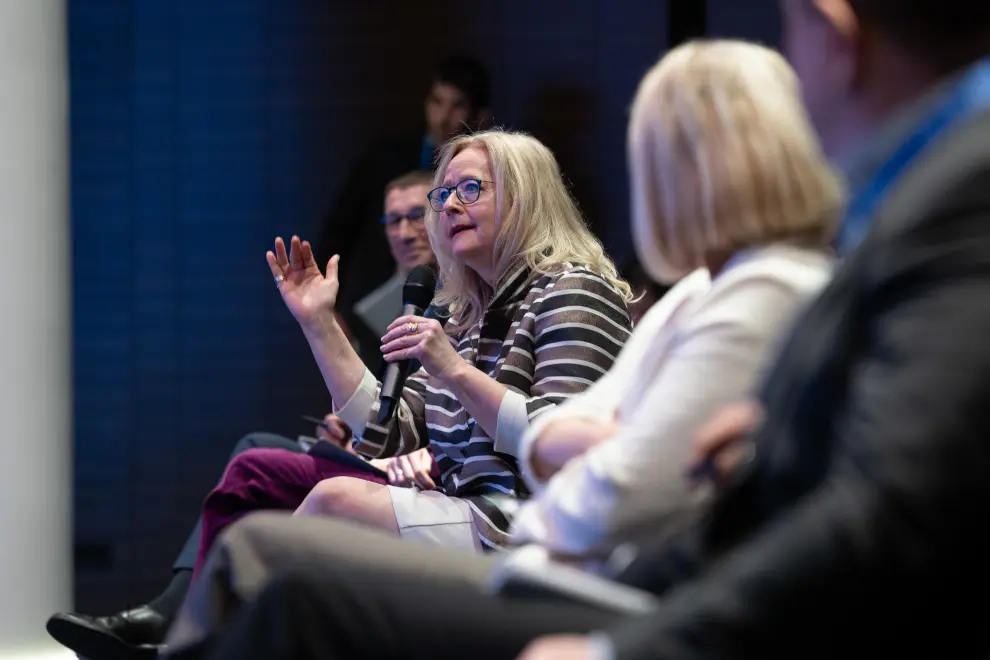Hidria wins German Business Award
Hidria, a leading Slovenian supplier of the global car industry, is the winner of the 2023/24 German Business Award, which recognizes important technological and economic innovation that has long-term effects.
The award is presented by the Slovenian-German Chamber of Commerce and Industry in cooperation with the German Embassy and the IEDC Bled School of Management.
The other two finalists were rotational moulding group Roto and MAN Truck & Bus Slovenija. This year, the award commission focused its attention on green transformation of the industry.
Addressing the award ceremony in Ljubljana on 26 March, the chamber's president Dagmar von Bohnstein noted that companies are increasingly putting sustainability at the forefront. She is confident that the European economy will be able to address the many challenges it faces with resilience.
German Deputy Ambassador Eva-Ricarda Willems agreed that the German economy is not in the best shape, but she believes that the outlook is better than many think. Germany has weathered the energy crisis better than most predicted, and has addressed labour shortages with determination, she said. "The German economy may not be in the best shape at the moment, but it is on the right path to get back there," she stressed.
Minister of Economy, Tourism and Sport Matjaž Han also expressed optimism about the economic outlook. However, he stressed that the European Commission must do more for the development of the European industry, as it will otherwise struggle to compete with Chinese and other industries. He welcomed the "traditionally good" business cooperation between Slovenia and Germany.
Klaus Wohlrabe, head of Ifo Surveys and deputy director of the Center for Macroeconomics and Surveys in Munich, said that the German economy is currently marked by considerable uncertainty, which is undoubtedly problematic, including because it dampens investment. However, the business sentiment indicator in Germany, calculated by Info, rose significantly in March, mainly due to less pessimistic business expectations for the coming months.
The biggest hope that the economic situation in the EU will improve is being put in the expected interest rate cuts this year. "However, we must bear in mind that it will take some time before the reduction of interest rates will bring tangible results," Wohlrabe said.
Wohlrabe disagrees with the recent labelling of Germany as the "sick man of Europe". "It is true, however, that Germany is currently facing more challenges than some other European economies," he conceded.
Future economic growth in the euro area and beyond will be strongly influenced by geopolitical developments, he said. In the longer term, demographics will play a very important role, which many people are not yet aware of, or are not sufficiently aware of, despite many warnings, he added.
Company growth strategies were discussed at a round table debate with Hidria CEO Bojan Gantar saying the group is reaping the results of early investment in green transformation. As an important partner of the automotive industry, they are quickly feeling every downturn in demand, so they feel it is important to participate in shaping trends, not just follow them.
Similarly, Roto Group CEO Nuša Pavlinjek Slavinec said that the early move towards the most sustainable business possible proved to be a very good decision. Companies that are able to adapt quickly, she said, will achieve growth in all conditions.
Jan Löwhagen, managing director of MAN Truck & Bus Slovenia, said that a lot of time and money has been spent on the electrification of trucks in recent years, but there is a lack of charging infrastructure. "Countries need to accelerate the transition to electric mobility," he said.



